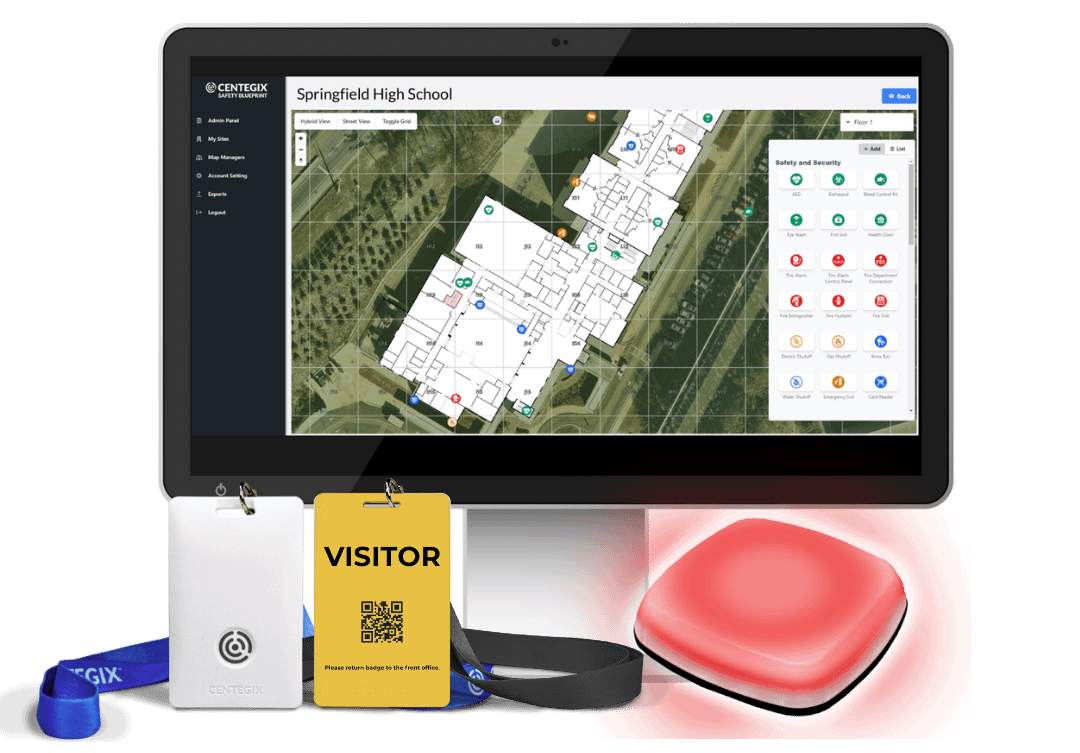As parents, few things matter to us more than the safety of our children. We entrust schools to protect our kids, knowing that teachers care deeply about their safety, but the unfortunate reality is that emergencies happen and that safety is not guaranteed. In today’s world, school safety technology isn’t just a nice-to-have, it’s non-negotiable. Wearable panic buttons are emerging as a critical tool in creating safer learning environments and giving parents peace of mind.
The past few years have highlighted the very real threats that exist in schools across the country, from bomb threats to escaped convicts, and any number of concerns. A recent Gallup poll covered by District Administration shows that parents are more worried than ever about their child’s safety at school. As the article states, “38% of parents fear for their child’s physical safety at school,” a number that’s higher than in the aftermath of previous school shootings.
In an AASA webinar, “Safe Schools, Strong Communities,” it became clear that prioritizing safety is more than just a moral imperative; it’s also a strategic advantage. School districts that invest in comprehensive safety measures, including innovative technology like wearable panic buttons, are often more attractive to families and experience increased enrollment.

But what do parents really think about wearable panic buttons?
To find out, we spoke with Chris DeNoia, a public school parent passionate about fostering strong partnerships between parents and schools. Chris believes in supporting school administration in every way possible, whether it’s volunteering his time or simply sharing information he thinks will help keep children healthy and safe.
His insights offer a valuable window into how this technology is changing the conversation around school safety.
The Power of Parent-School Partnership
Chris is a vocal advocate for parent-school collaboration. As he puts it, “We want to be part of the solution, not just a group of parents that get mad if something happens. We want to help be proactive about it.” This sentiment echoes the findings of the AASA webinar, which emphasized the importance of open communication and shared responsibility in building safe school communities.
First Impressions: The Simplicity and Effectiveness of CENTEGIX
Initially skeptical, Chris admits he became a “cheerleader” for CENTEGIX after seeing a demonstration. “What really sold me was the elegance of the system,” he explains. “It’s simple, it’s reliable…it’s the most effective, quickest way to get help.” The CrisisAlert badge, a wearable panic button that instantly sends a precise location to responders, was a key factor in Chris’s enthusiasm.
School Safety as a Deciding Factor for Relocation
For Chris and many other parents, school safety is a major consideration when choosing where to live. He shared how another parent specifically sought out a school district with CENTEGIX, demonstrating that comprehensive safety measures can influence a family’s decision to relocate. This aligns with the expert opinions shared within AASA, which is that safety can be a powerful draw for families seeking a secure learning environment for their children.
Standout Features for Parents
For Chris, the top priorities in a school safety solution include reliability, simplicity, and speed. CrisisAlert addresses all three: it’s always available, easy to use, and initiates a rapid incident response. “It just gives me peace of mind,” Chris says, knowing that the adults caring for his child have a reliable way to request for help.
Wearable Buttons vs. Alternative Technologies
While mobile apps and other safety measures like secured perimeters or visitor management systems are important, Chris believes the wearable button offers unique advantages. He explains, “Every single time I have couched the conversation about the shortcomings of a mobile app solution and how it does not translate to efficiency when efficiency matters most, the conversation naturally then transpires into the wearable button, and how it can actually ameliorate that exact shortcoming.” The badge’s simplicity and accessibility are crucial, especially in high-stress situations. Moreover, as Chris notes, CENTEGIX goes beyond the “baseline” technology required by Alyssa’s Law, providing a comprehensive incident response solution.
Real-World Impact: A Parent’s Witness Account
Chris was able to observe CENTEGIX in action during a drill at his child’s school. He was impressed by how quickly the system initiated a lockdown and provided clear, accurate information to first responders. “There’s no ambiguity,” he emphasizes. This removal of uncertainty in a crisis is vital for saving lives, which is one of the key reasons that the CrisisAlert badge is used by over 600,000 educators and school staff throughout the country, with more school districts signing on every day.











